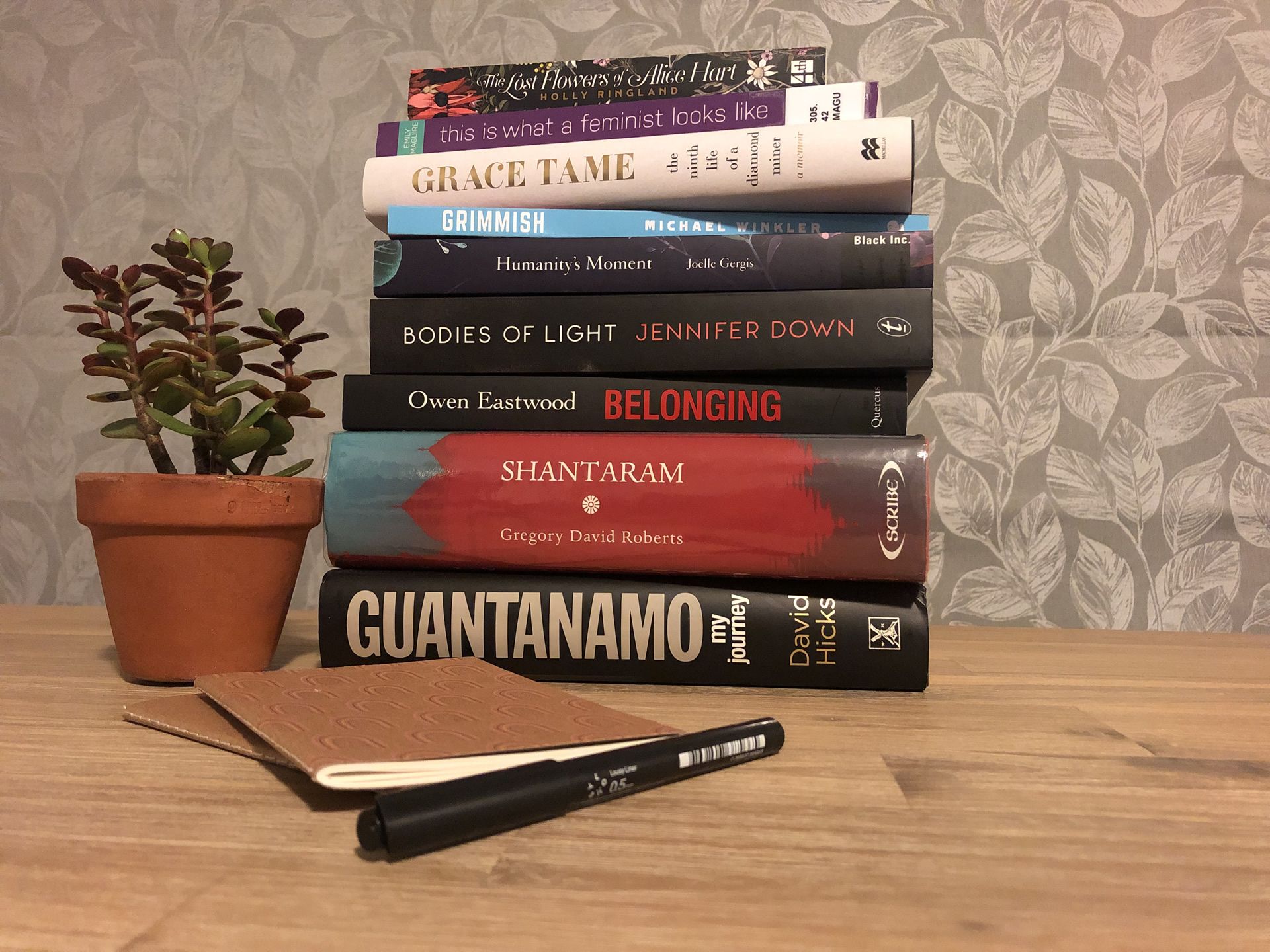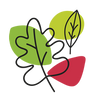Waiting
Or, all the books I’m yet to read.

Recently I saw someone on Twitter complaining about people who post about all the books they’ve been reading. So, I decided to post a picture of one of the piles of books I’m yet to read. Yep, this is just one of the piles, patiently awaiting my attention.
Since January, my usually prolific reading has encountered a huge blockage because I’ve been reading Swann’s Way, the first volume of Proust’s novel In Search of Lost Time. I’m pleased to say that I’ve been powering through it of late and am nearly finished. I’m looking forward to closing it with a satisfied sigh and making my way over to this pile of books.
Some of these books won or were nominated for awards in 2022. But I reckon the 2023 winners will be announced before I get toward the bottom of this pile, so there will be more to add to it this year.
Here’s a rundown on the books – each of which has a distinctly Australian feel – and what they mean to me. I hope this pile inspires you to add more books to your own reading list. Do let me know if you’ve read any of these and if there are any that you enjoyed, or any I should avoid!

------------------
The Lost Flowers of Alice Hart by Holly Ringland
I bought this book because of the beautiful cover designed by Edith Rewa, an incredible Australian botanical artist whom I greatly admire. It comes with a set of inspirational flower cards but I haven’t opened them yet. I’m waiting to do that as a treat after I’ve read the book. I’m intrigued by this book because it’s set in Australia but draws on the Victorian tradition of applying meaning to flowers.
This is What a Feminist Looks Like by Emily Maguire
A dear friend introduced me to Maguire’s work and I’m pretty keen to read this book. It’s from the library so I’d better get my skates on. I’m looking forward to learning about the state of feminism in Australia across all realms of our existence: politics, work, home, our bodies and our public spaces.
The Ninth Life of a Diamond Miner by Grace Tame
In Australia, Grace Tame is a household name. For those of you who haven’t come across her in your social feeds, Tame first came to the public’s attention when she shared, with strength and authenticity, how she was sexually abused as a child. She was Australian of the Year in 2022 and had a rather controversial interaction with our then Prime Minister. I want to understand more about the woman behind the public persona.
Grimmish by Michael Winkler
This book was recommended to me by Jo Canham, the owner of my absolute favourite bookshop, Blarney Books and Art in Port Fairy. She said it’s one of the best books she’s ever read. And she reads a lot! So, Grimmish is moving to the top of the pile.
I love this article where Winkler describes how the book was shortlisted for the Miles Franklin award and this helped catapult the book – and Winkler himself – into the public eye. This article gave me goosebumps. And I can’t wait to read Grimmish. I know that, when I do get to it, I’ll be sorry that I waited so long.
You can follow Winkler on Twitter.
Humanity’s Moment by Joelle Gergis
I heard Gergis speaking at the Mountain Writer’s Festival in 2022 and, after hearing her impassioned speech, I couldn’t leave without a copy of the book. Gergis is a climate scientist. She is a lead author on the United Nations’ Intergovernmental Panel on Climate Change’s Sixth Assessment Report. In her book, she talks about the heartbreak she experienced while bearing witness to the dire state of the planet. But, in her speech, Gergis told us that Humanity’s Moment is also a story of hope. The book explains what we need to do to lie sustainably and that these solutions already exist. But I am left wondering if this one will slip to the bottom of the pile. I hope I have the courage to take it on, rather than bury my head in the sand.
Bodies of Light by Jennifer Down
This book won the Miles Franklin Award in 2022 and I had the pleasure of listening to Down – and meeting her briefly – at the Port Fairy Literary Weekend hosted by Blarney Books and Art last year. She’s a lovely, sincere person and I really enjoy following her on Twitter. This book is about trauma though and that might be why it’s in the middle of the pile. I’m desperate to know what this book is like because I’ve learned so much about her writing process and I’m keen to read the results. I’ll get there, for sure.
Belonging: The Ancient Code of Togetherness by Owen Eastwood
This one has been on my pile for a long time. Here’s the paragraph in the blurb that convinced me to buy it: “Whakapapa is a Māori idea that embodies our universal need to belong. It represents a powerful spiritual belief – that each of us is part of an unbroken and unbreakable chain of people who share a sacred identity and culture.”
Eastwood’s hypothesis is about team building though, and I guess that’s why I haven’t prioritised Belonging so far – I’m a bit of a lone ranger in my work these days, but am keen to learn about why humans need to belong.
Shantaram by Gregory David Roberts
Shantaram is the story of an Australian prisoner who escapes and makes a new life for himself in India. I picked up this book in a second-hand bookshop with the hope it would be a rollicking great holiday read, but I also wanted something completely different from the books I’ve been reading over the past year or two. I’ve been so focused on particular eras in Australian history while I’ve been researching my novel and this seemed like a welcome departure in mood and setting. This book has since been made into a TV series. I think I’d like to read Shantaram on a beach somewhere, sometime down the track when I’ve finished writing my own novel.
Guantanamo, My Journey by David Hicks
I’ll never forget the story of David Hicks, who was captured in Afghanistan in December 2001. He was accused of having trained with al-Qaeda and having met terrorist leader Osama bin Laden. He was taken, with other alleged terrorists, to America’s Guantánamo Bay naval base in Cuba.
Hicks spent five years in Guantanamo Bay, three of which he spent in isolation. He alleges he was subjected to torture during his incarceration.
I’m keen to get his perspective and also to learn more about Dan Mori – the inspiring lawyer who represented Hicks and challenged the US military commission system to ultimately lead to Hicks returning to Australia.
